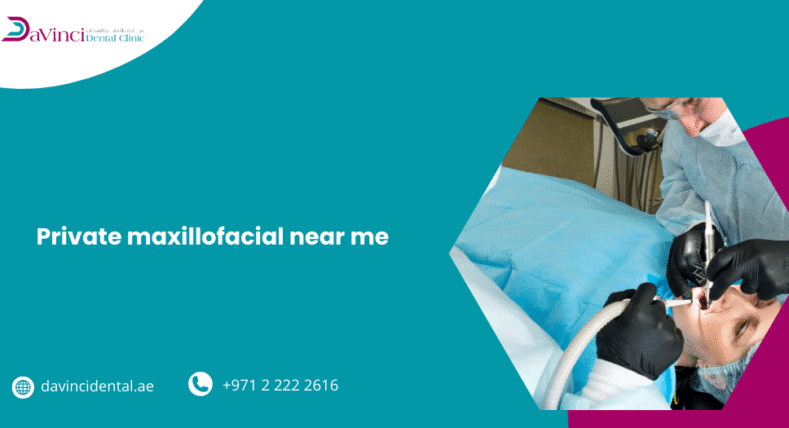Do you have some issues related to your jaw, mouth, or facial structure, and you’re searching for a maxillofacial clinic near me? Well, you’re in the right place.
From impacted wisdom teeth to facial damage and reconstructive surgeries, maxillofacial surgery is a highly complex issue that includes a wide range of disorders.
Finding a qualified and trustworthy clinic is the first step to getting the best outcomes, regardless of whether your goals are practical, cosmetic, or both.
In this article, we will explain what maxillofacial surgery is, the various types of treatments that can be done, who can benefit from it, and how to pick the most suitable clinic for your needs.
Table of Contents
What Is A Maxillofacial Surgery?
Maxillofacial surgery is a treatment for illnesses, injuries, and abnormalities of the mouth, jaw, or face. Maxillofacial surgeons specialize in diagnosing and treating abnormalities for:
- The jaw and lower face bones and tissues.
- The roof of your tongue (palate).
- Teeth.
The purpose of maxillofacial surgery is to improve jaw function and ease the pain of different diseases.
Numerous dental disorders and problems can be treated via maxillofacial surgery, including:
- Figuring out what causes chronic dental discomfort.
- Preparing your mouth for prosthetics (like dentures) and dental implants.
- Installing dental implants.
- Extraction of impacted teeth.
- Address dental issues.
What Are the Examples Of Maxillofacial Surgery?
- Cancer treatment for the head, neck, and mouth.
- Orthognathic surgery: Often known as corrective jaw surgery, is used to address serious issues with jaw alignment, such as overbites or underbites.
- Surgery for cleft lip and palate.
- Bone grafting: A technique used by surgeons to fix skeletal abnormalities or replace bone in the face or jaw for dental implants.
- Cosmetic surgery for the face.
- Treatment for TMJ Disorder and Facial discomfort: This deals with jaw joint discomfort and dysfunction.
- Managing and Extracting Wisdom Teeth: the extraction of wisdom teeth by surgery, particularly if they are impacted, meaning they are trapped and cannot come out.
- Surgery for Dental Implants: To support replacement teeth, titanium roots are inserted into the jaw.
Who Are The Candidates For Maxillofacial Surgery?
Many conditions might require oral or maxillofacial surgery. You’ll need to consult with your dentist to check your condition and see if you need surgery.
Anyone with one or more of the following conditions might require maxillofacial surgery:
- Asymmetry of the face, including tiny chins, underbites, overbites, and crossbites.
- Birth defects or facial injuries.
- Difficulties swallowing, chewing, and biting.
- Pain from disorders of the temporomandibular joint (TMJ) and other issues with the jaw.
- Speech issues.
- Persistent jaw ache.
- Open bite (the gap between the upper and lower teeth while the jaw is closed).
- Aesthetic issues.
- Apnea during sleep.
- Jaw prominence.
Why Have Maxillofacial Surgery?
Whether we like it or not, a person’s facial features may greatly influence both how they see themselves and how others see them. This may significantly impact one’s sense of confidence and result in significant negative effects.
In addition to having major effects on breathing, speaking, chewing, and dental appearance, jaw issues can also influence a person’s facial appearance.
In certain situations, jaw surgery is able to enhance the look of the face by restoring facial equilibrium. Additionally, this can significantly enhance chewing and jaw function, as well as improve speech, dental health, and, in certain situations, breathing.
What Are The Benefits Of Maxillofacial Surgery?
Maxillofacial surgery has the following advantages:
- Pain relief: Symptoms of misaligned jaws or teeth include migraines, toothaches, and facial discomfort. By fixing these problems, maxillofacial surgery can relieve your pain.
- Improved performance: Speaking, eating, and biting can be hampered by disorders of the jaw and face. Maxillofacial surgery makes sure that every structure functions as a whole.
- Better health: Your oral and general health might be negatively impacted by disorders and injuries of the mouth or face. Surgery may be the only option to get rid of an infection and lower your risk of more harm.
- Improved appearance: Cosmetic issues, including crowded teeth or facial defects, can be resolved with maxillofacial surgery.
A Guide for Patients About How To Find A Maxillofacial Clinic Near Me
If you are in Abu Dhabi and you’re looking for a maxillofacial clinic near me, then you’re in luck. Davinci Dental Clinic is located in the heart of Abu Dhabi, and we offer a wide range of treatments and services for oral and maxillofacial conditions.
Our crew of highly skilled dentists, medical specialists, cosmetic surgeons, and other medical professionals is committed to giving patients the finest treatment possible.
You can find what you’re looking for with us, whether you’re aiming for a functional or cosmetic treatment or both.
Conclusion
The first and most important step to achieving ideal dental health, facial equilibrium, and enhanced quality of life is choosing the best maxillofacial clinic near me.
You can be sure that your treatment experience will be easy, secure, and provide lasting results by choosing a trusted clinic with skilled staff, advanced technology, and patient-focused care like Davinci.
The correct maxillofacial clinic can confidently assist you in achieving your goals, whether they be pain relief, better function, or improved attractiveness.
Read More: Jaw Surgeons Near Me.
Frequently Asked Questions
What is the difference between oral and maxillofacial?
Both maxillofacial and oral surgeons have the same training and qualifications. For example, they both do dental implant placement, bone grafting, and tooth extraction. However, maxillofacial surgeons also do more complex treatments, such as face reconstruction surgery.
How painful is maxillofacial surgery?
Although the procedure is not painful, you will likely experience some soreness, and you will be prescribed daily pain medication after it's completed. It may take a few weeks for the soreness to completely subside, but it typically improves after the first few days.
How to improve maxilla bone naturally?
You may strengthen your maxilla by chewing tougher foods. Chewing regularly increases the density of the jawbones over time, according to research. Try chewing sugar-free gum or eating crunchy nuts and vegetables, as it will stimulate your jaw.





